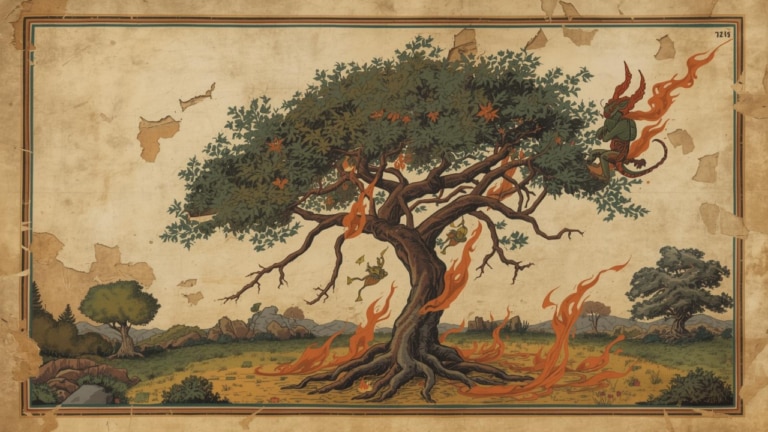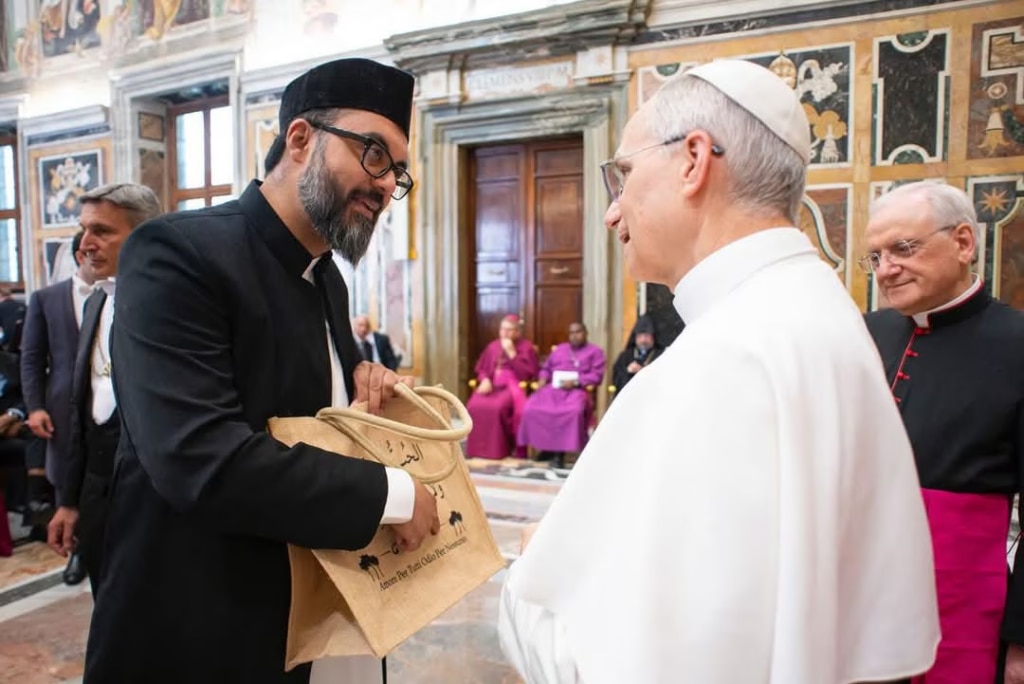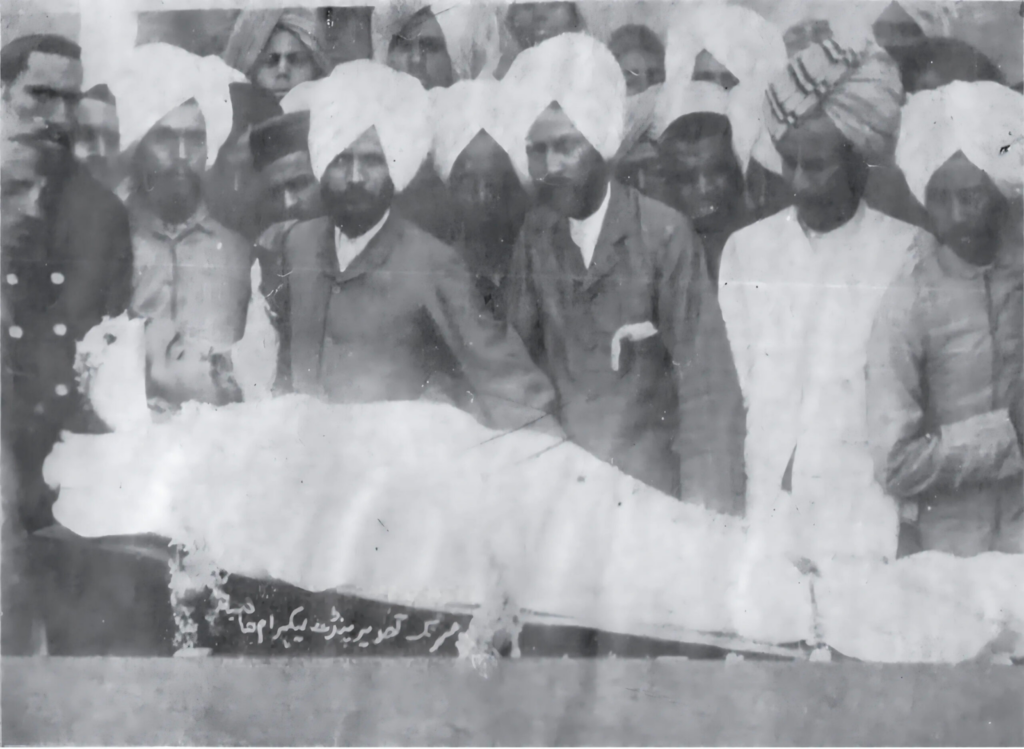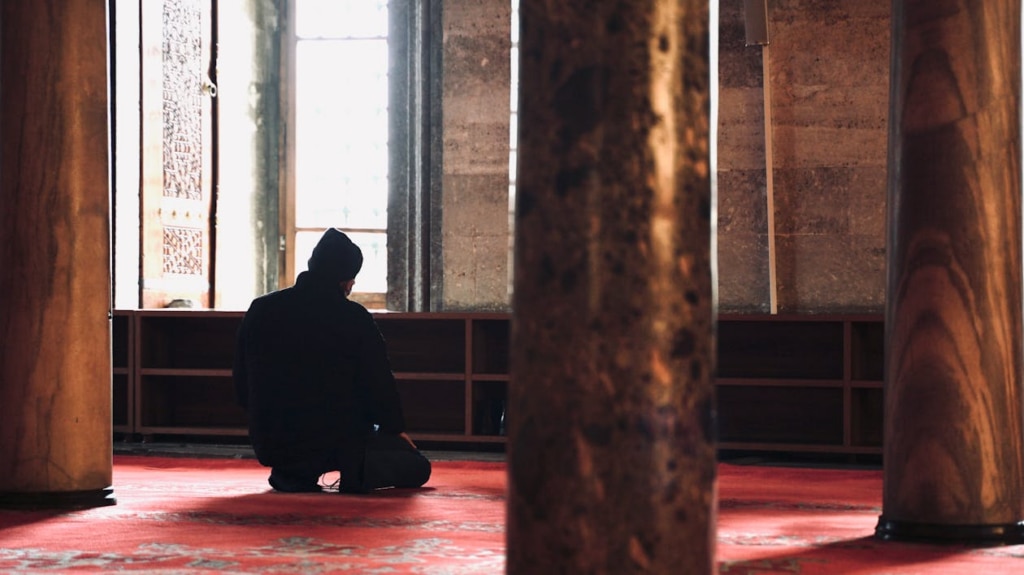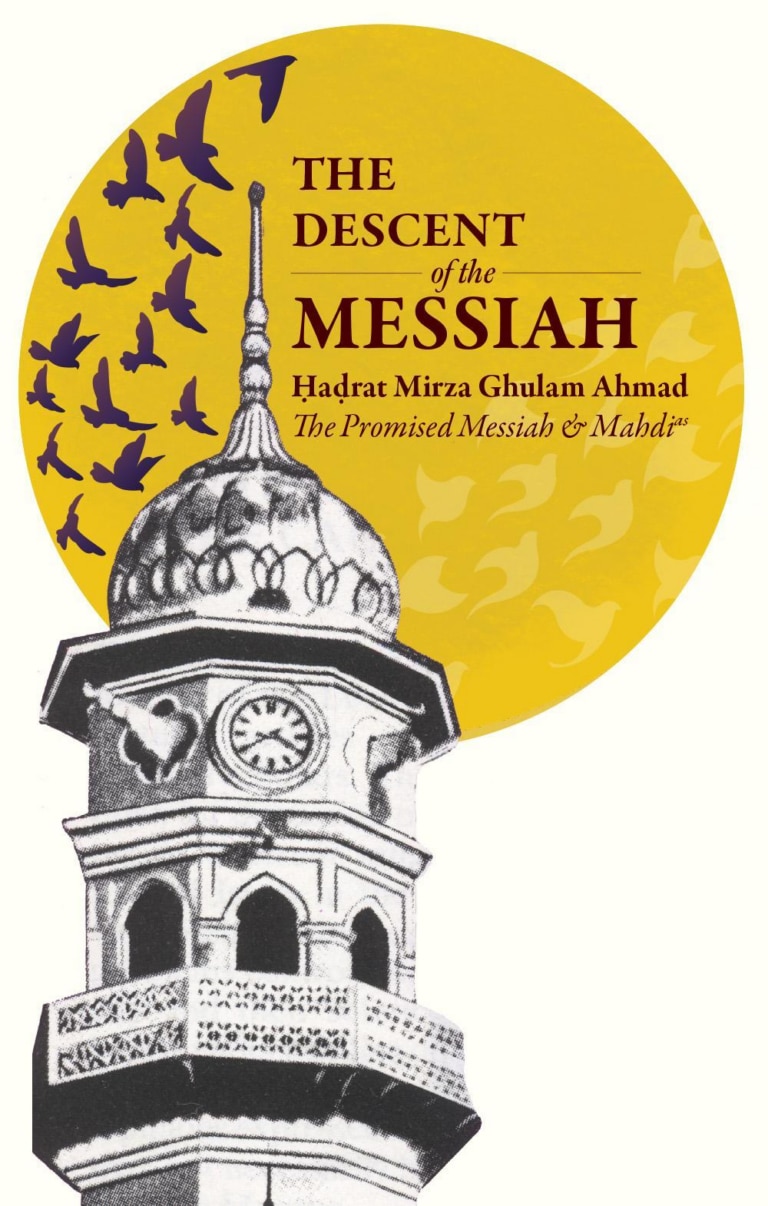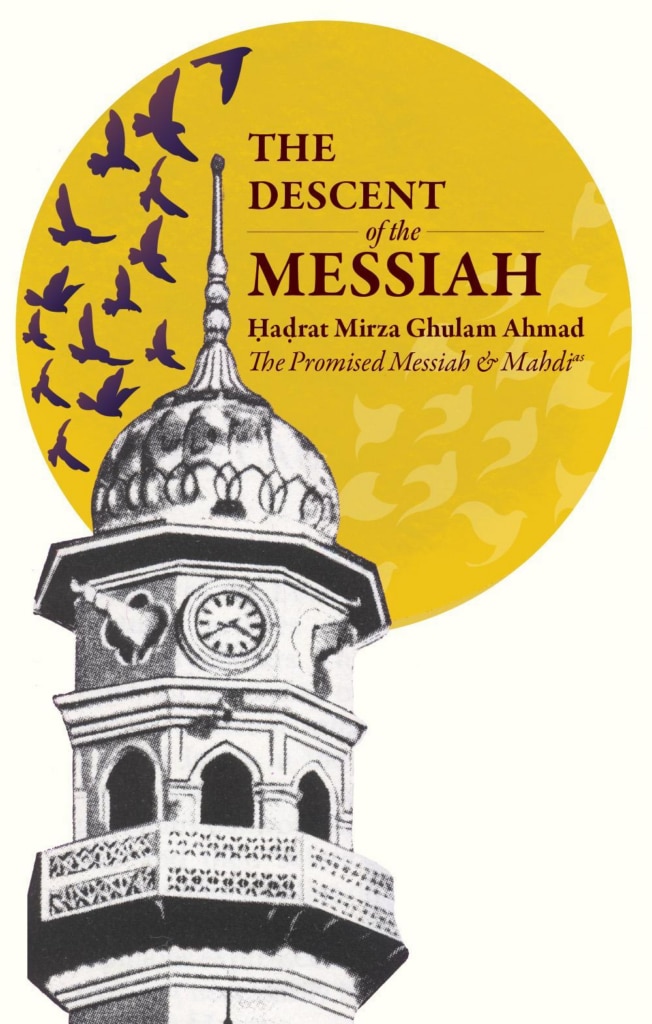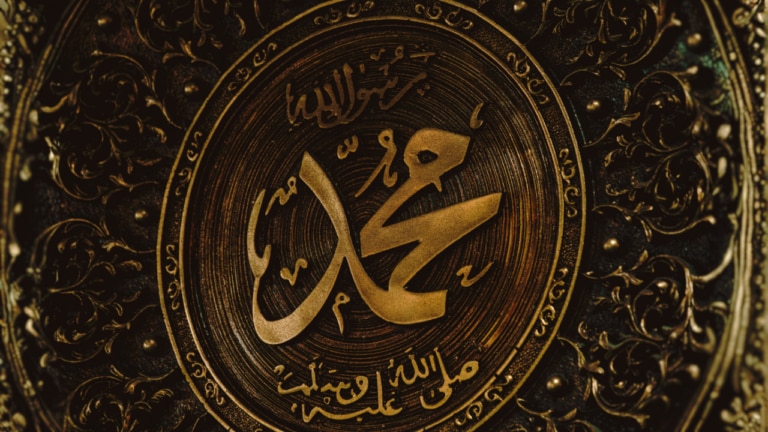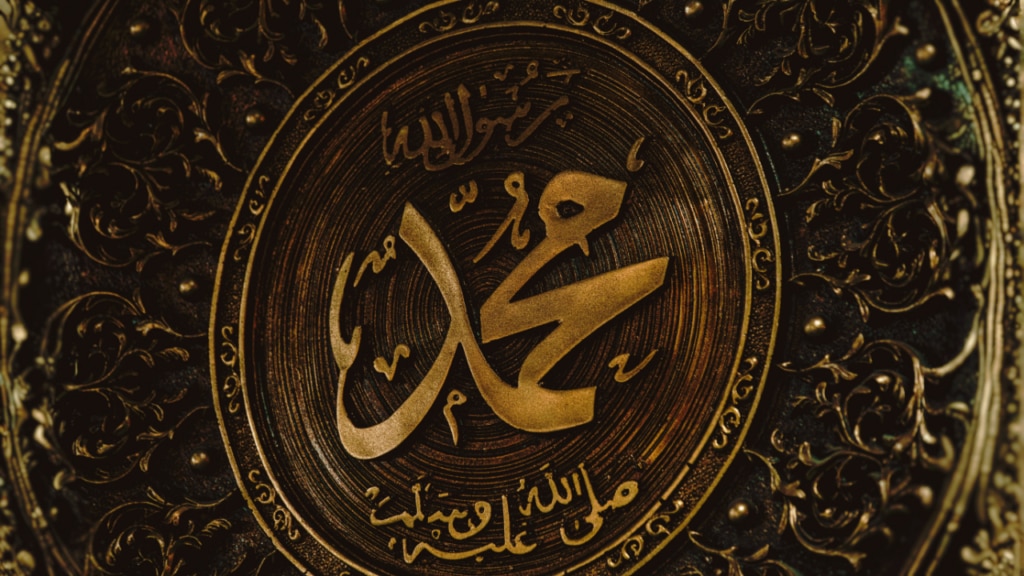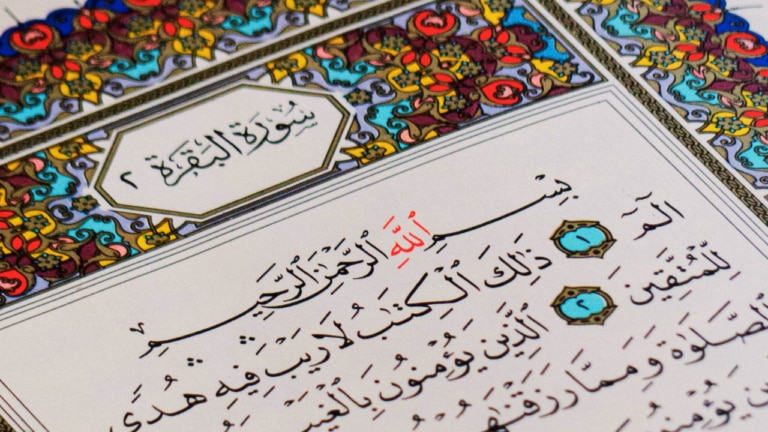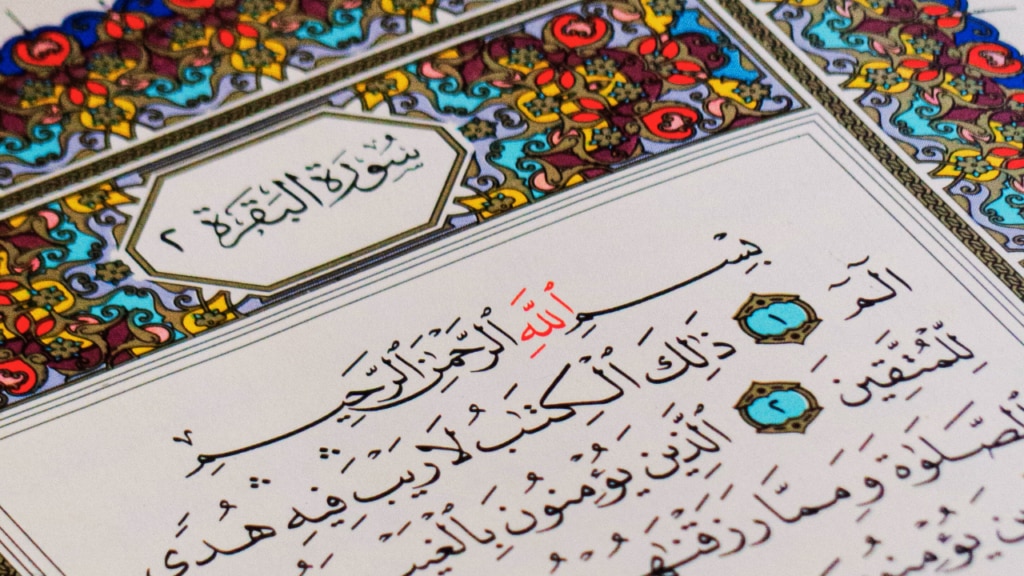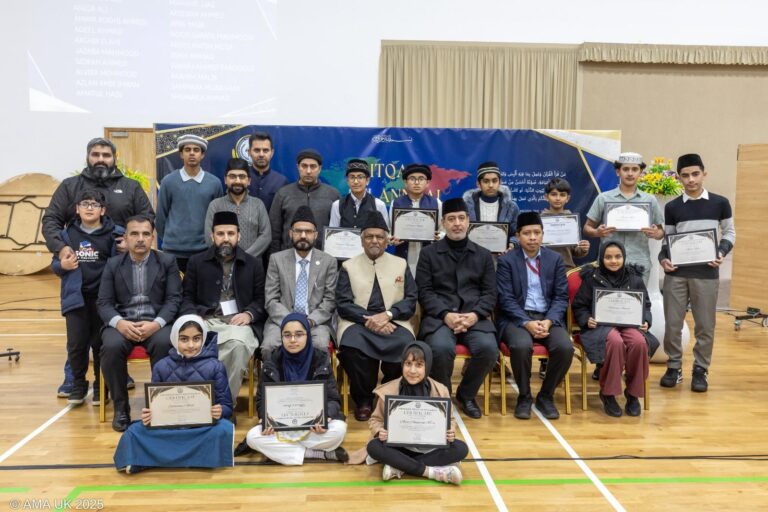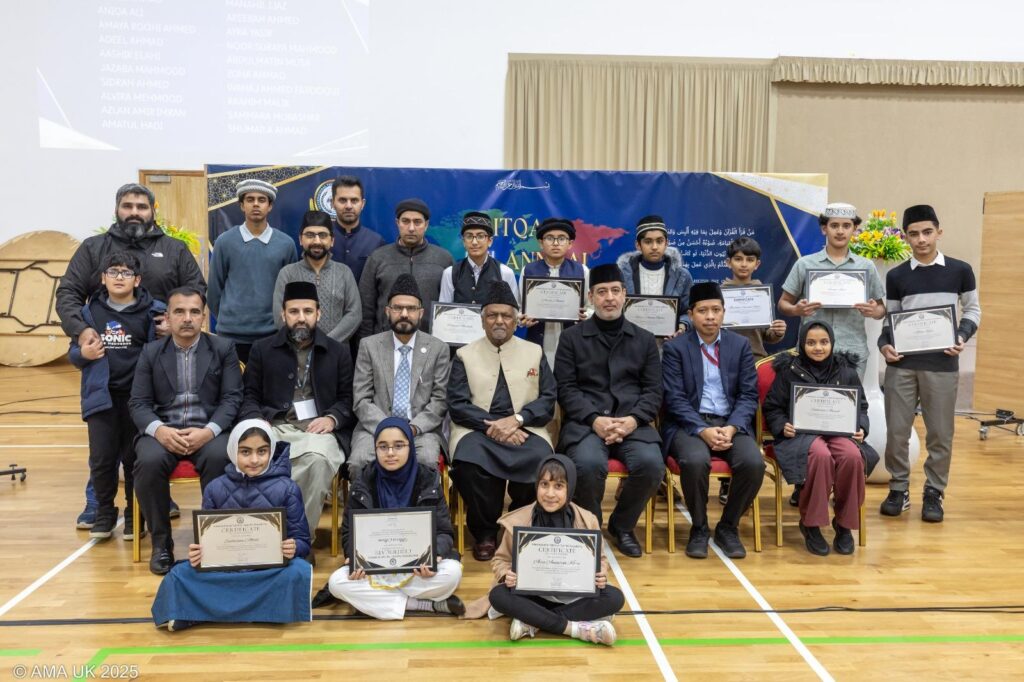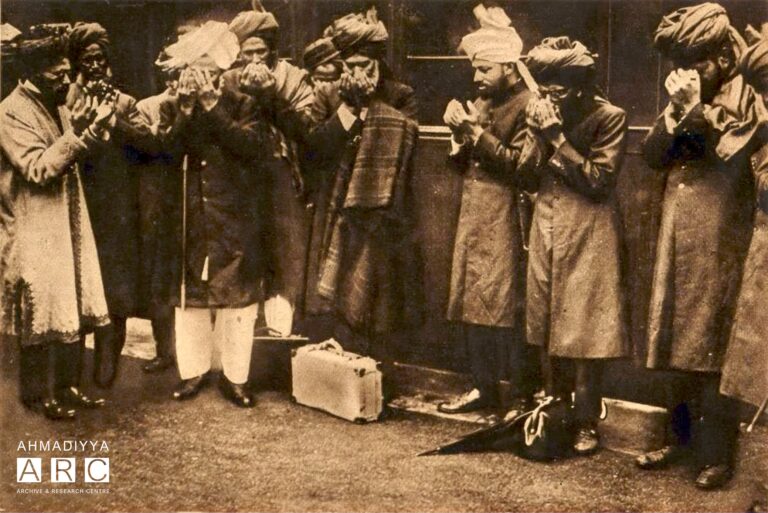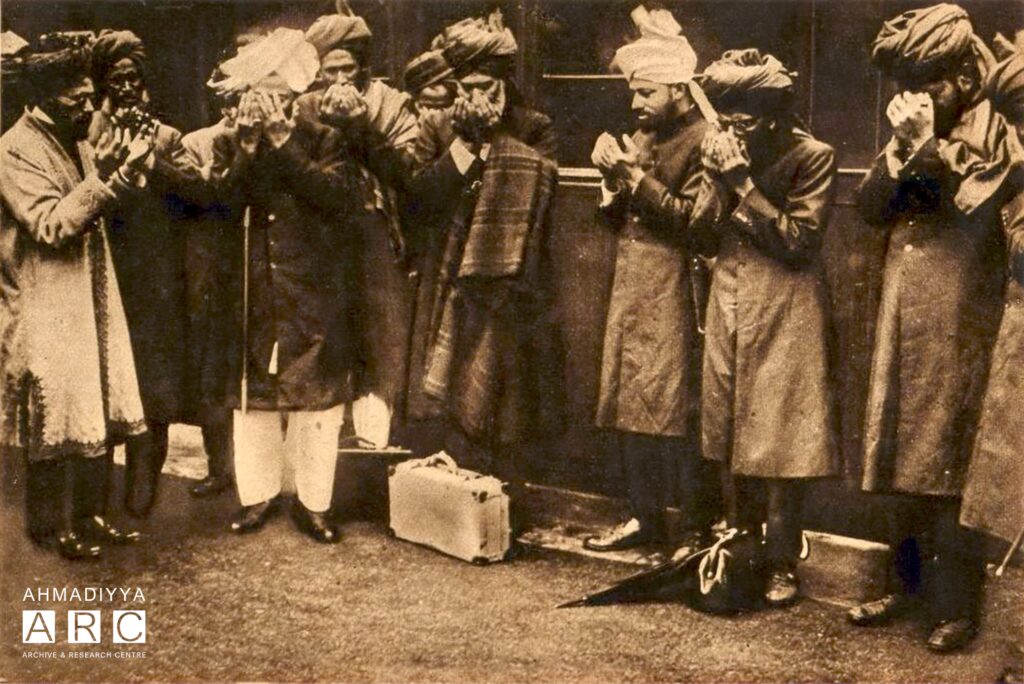Jalees Ahmad, Al Hakam
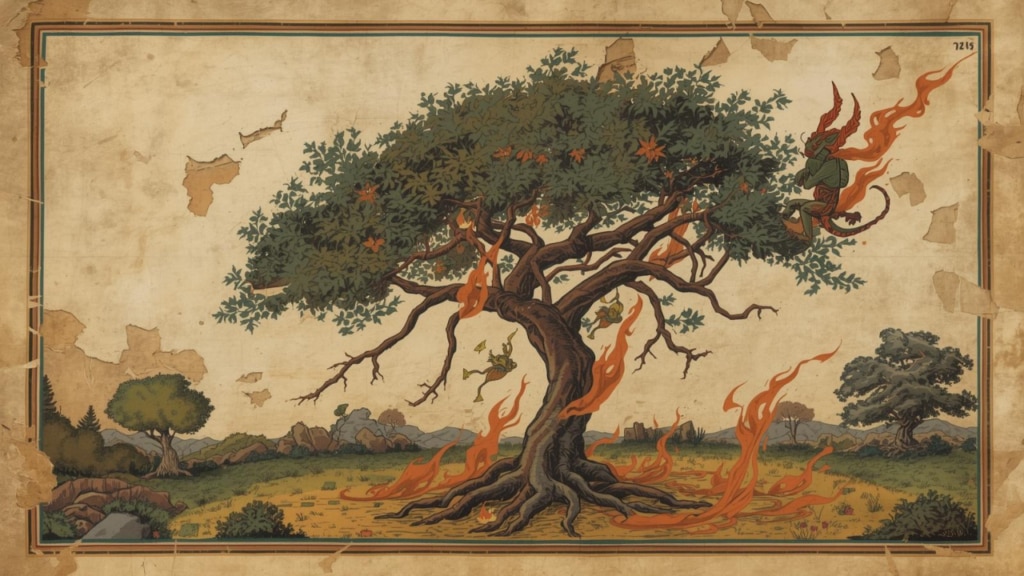
The story of Prophet Adamas and Iblis, the jinn who rejected him out of arrogance, is a well-known story among Muslims and non-Muslims alike. Iblis, who was among the jinn, refused to acknowledge Adamas, while the angels submitted to God’s command and bowed in prostration. (Surah al-Baqarah, Ch.2: V.31-35; Surah al-A‘raf, Ch.7: V.12-19) Iblis claimed that, because he was created from fire while Adamas was created from clay, he was superior:
خَلَقۡتَنِیۡ مِنۡ نَّارٍ وَّخَلَقۡتَہٗ مِنۡ طِیۡنٍ
“He said, ‘I am better than he. Thou hast created me of fire and him hast Thou created of clay.’” (Surah Sad, Ch.38: V.77)
The Holy Quran also states that jinn were created from a fire: “And the jinn He created from the flame of fire” (Surah ar-Rahman, Ch.55: V.16), and that they existed before humankind: “We created man from dry ringing clay, from black mud wrought into shape. And the jinn We had created before from the fire of hot wind.” (Surah al-Hijr, Ch.15: V.27-28)
This story of Adamas and Iblis, cited in several passages of the Holy Quran, raises important questions. What, or who, are jinn? What does it mean that they were created from fire and that humans were created from clay? And what does the jinn existing before Adamas signify?
Who and what are ‘jinn’?
Until we understand the true meaning of the word jinn; and since it’s an Arabic term, until we grasp its linguistic roots and the words derived from it, this subject will remain veiled to us. The Holy Quran affirms the existence of jinn, but the central question we now need to address is: what exactly are they?
The term jinn, as understood linguistically, is both a proper noun and a generic term. Linguistically, anything that conceals another thing, casts a veil over it or obscures it is considered a jinn. Likewise, anything that dwells in darkness or becomes hidden from sight is also considered a jinn.
It must be remembered that the word jinn does not always have only one fixed meaning. For example, in Arabic, the root j-n-n indicates concealment. Thus, the following words are derived from this very root, and all have a connotation of concealment: (i) junnah: a shield that hides a person. (ii) janin: an unborn child hidden in the womb. (iii) junun: a condition that hides one’s intellect. (iv) jinn: a creature hidden from the human eye. (Haqaiq-ul-Furqan, Surah al-Jinn, Ch.72: V.2)
“The word jinn,” as explained by Hazrat Khalifatul Masih Vaa “is also used for veiled women. It is also used for such chieftains and the elite who do not mix with the public. It is also used for people of nations that live in geographically remote areas and are cut off from the rest of the world.” (“Who or what are jinn?”, alhakam.org, 10 March 2023)
If we look towards the Holy Quran, we find that the word jinn appears in over 20 places, though it does not always carry the same meaning each time. In summary, the Holy Quran uses the term jinn in several senses. (Note: To keep this article focused on its main topic, Adamas, Iblis and the surrounding narrative, any discussion of jinn is kept brief here. A separate, in-depth article exploring jinn, its meanings, and its connection to those mentioned in Surah al-Jinn will be written at a later date.)
Who were the ‘jinn’ before Prophet Adamas?
Now, we shall delve into the jinn as pre-Adamic humans. The Holy Quran says: “And the jinn We had created before” (15:28).
The Holy Quran also uses jinn for ancient humans who lived before Adam’sas civilisation. These individuals lived like animals, without law, culture or any social order, hiding in caves and forests. When Adamas introduced moral and social structure, these primitive people were collectively called jinn, i.e., hidden, uncivilised humans. (Tafsir-e-Kabir, Vol. 5, p. 297)
Early humans, because of wild beasts, could not freely move on the surface of the earth. According to their condition, they were given the name jinn (hidden, uncivilised humans). These are the very same people whom modern historians call “cavemen”.
When the human mind advanced and humans became adept at receiving divine revelation, God chose a man who was fit to live upon the earth’s surface. He was granted the title Adamas because he had become suitable for settled life, and insan (human) because he was capable of receiving God’s love on the one hand and, on the other hand, capable of compassion and sacrifice for his fellow beings. Thus, God selected him for His revelation. Those among the earlier cavemen who accepted Adam’sas system, joined him, came out of their caves and accepted the discipline of a social order – they were called human beings (insan). Those, however, who rejected abandoning a wild life and regarded cave-living as freedom were called jinn on account of their mode of life.
And so, in the early stage of human development, the term jinn applied to those individuals who were devoid of civilisation and incapable of accepting an ordered system. And the term insan applied to the group that chose mutual cooperation and obedience to a law.
From that point onwards, these two names became associated with two traits: those who rejected order and authority were called the offspring of the jinn, and those who submitted to a system of discipline were called the offspring of Adamas. The names became descriptive, and therefore it sometimes happened that the children of jinn, by reforming themselves, became human; and sometimes the children of human beings, becoming corrupt and disorderly, turned into jinn. (Ibid.)
What is the meaning of ‘created from fire’ and ‘created from clay’?
When the Holy Quran states: “And the jinn We had created before from the fire of hot wind” (Surah al-Hijr, Ch.15: V.28), it means that these people had fiery dispositions and were quick to anger. Before Adamas, this was indeed the condition of early humanity. Adamas was the first man who reached moral and social excellence; therefore, revelation relating to living in a civilised way, and morals and ethics, first descended upon him. Those people who joined his social order then engraved obedience upon their hearts; they were therefore called, as Hazrat Musleh-e-Maudra has explained, “طيني” which means made of clay, because clay accepts impression. Those who favoured unrestrained freedom and refused discipline were called “fiery”, like flames that cannot be controlled. Such people, who were living in caves, were called jinn. (Tafsir-e-Kabir, Vol. 5, pp. 297-298)
Although it could be objected that God says He created the jinn from fire and so it must be this, the answer is that elsewhere God says: “Man is made of haste.” (Surah al-Anbiya, Ch.21: V.38) No scholar understands this to mean that “haste” is a physical substance. It means that haste is deeply rooted in human nature. Similarly, God says Allah created you from weakness (Surah ar-Rum, Ch.30: V.55). This means that a child is created weak, not that “weakness” is a physical material. Thus, in the same case, “created from fire” refers to temperament, not substance.
Why did Allah call them ‘ins’ and ‘jinn’ instead of ‘believers’ and ‘disbelievers’?
Now, as it has been established that those who accepted Adamas came to be known as ins, while those who rejected him and chose to live in their own hidden ways were known as jinn, one might ask why God referred to them by these names (ins and jinn) rather than simply calling them believers and disbelievers.
The answer to this is that for ordinary people, the simple terms “believer” and “disbeliever” suffice, but for them, the appropriate terms were “Adam” and “Iblis” or ins (humans) and jinn. At that time, human intellect was not developed enough to understand the intricate matters of divine law; they could only grasp the basics. (Sair-e-Ruhani, p. 32)
Hence, instead of “believer” and “disbeliever”, they were called ins and jinn so that the distinction in their civilisation and conduct could be communicated in a way they could understand. Today, human intellect is advanced enough that when someone is called a believer or disbeliever, they understand the meaning of these terms. But in that era, if someone had been told they were a disbeliever because they did not accept Adam’sas message, they would not have understood the connection between disbelief and rejecting Adamas.
Thus, those who accepted Adamas and embraced civilised life were called ins, while those who rejected Adamas and decided to hide in caves were called jinn. This distinction was easily understood by them because they knew that some lived on the surface of the Earth while others lived in caves. When they were called jinn, they understood that they preferred to stay in the caves. When others were called ins, they recognised that they lived on the surface and thus could not be called jinn.
Modern European archaeologists are amazed that, after extensive research in the nineteenth century, they discovered that humans initially lived in caves. Yet, over thirteen hundred years ago, the Holy Quran distinguished such people by calling them jinn. (Ibid.)
Conclusion
Just as in the present day, humans are distinguished by the terms “believer” and “disbeliever”, in that era, humans were distinguished by the terms ins and jinn because the basis of difference was civilisation. The terms ins and jinn were used to show who followed divine guidance and adopted civilised life, and who rejected it. Those who embraced civilised life and lived on the earth’s surface were called ins. Those who refused civilised life and chose to stay in caves were called jinn.

